Is Poplar a Hardwood? Pros, Cons, Comparisons, & FAQ
-
Pete Ortiz
- Last updated:
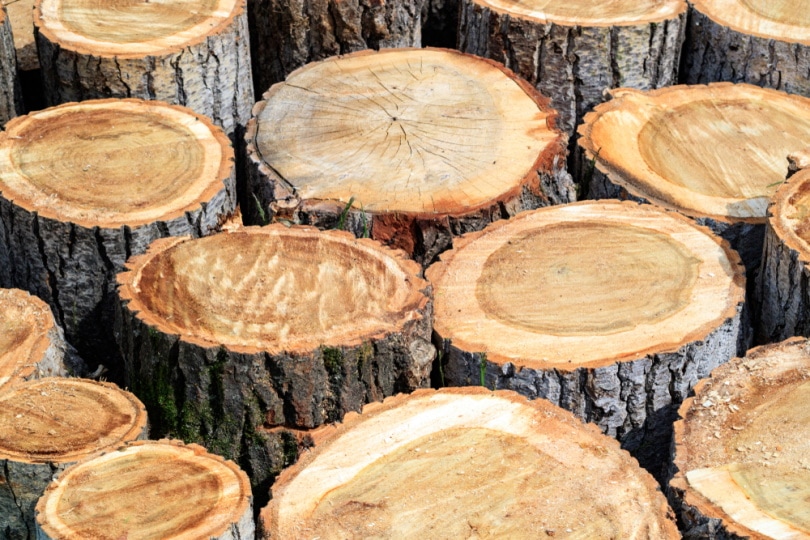
Poplar wood is widespread and popular in the furniture manufacturing industry. While poplar is excellent for manufacturing furniture, and while it is a type of hardwood, it is not a very good flooring solution. Even though poplar is classified as a type of hardwood, it is incredibly soft and prone to dents, scrapes, insects, and rot.
In the article below, we will explain why poplar is not an excellent option for flooring and what it is mainly used for.
 What is Poplar?
What is Poplar?
Poplar is a very popular softwood species commonly used for making many different useful objects. Poplar is always a popular choice, especially for interior work, because it is versatile, inexpensive, and easy to work with. Because it is such a fast-growing tree, it has become affordable and widespread in the industry. Poplar is primarily used for making furniture because it is so easy to work with, and it takes paint and glue exceptionally well.
Because poplar is such a soft wood, it is also used frequently for woodworking projects, decorative items, toys, and cabinets.
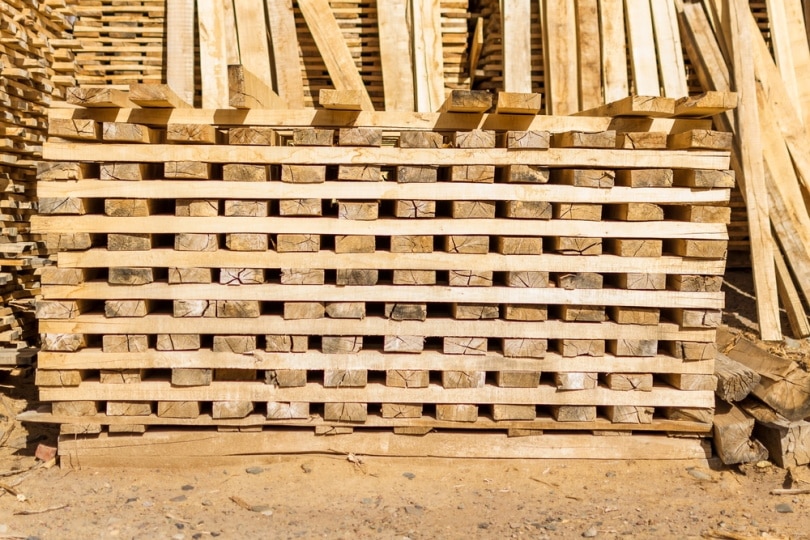
Is Poplar a Hardwood?
A hardwood is a type of wood that comes from a deciduous tree, meaning they lose leaves annually, while softwood comes from coniferous trees that stay evergreen even throughout the winter. The main difference between hardwood and softwood is in the type of seed. Hardwood seeds grow in the form of fruits, while softwood seeds grow in the form of cones.
Poplar is a type of deciduous tree, meaning it is classified as a hardwood. Even though it is considered a “hardwood”, it is one of the softest commercially used woods.
Is Poplar Wood Strong?
Poplar wood has a higher density than other softwoods and most hardwoods. Since the density of the poplar wood is high, this wood is considered pretty strong and durable. While poplar wood is strong, it is not as hard as other hardwoods. Poplar is one of the softest woods of all the hardwood species. The Janka Hardness scale measures the hardness of the wood in the industry. In the table below, you can see how poplar compares to other hardwood species.
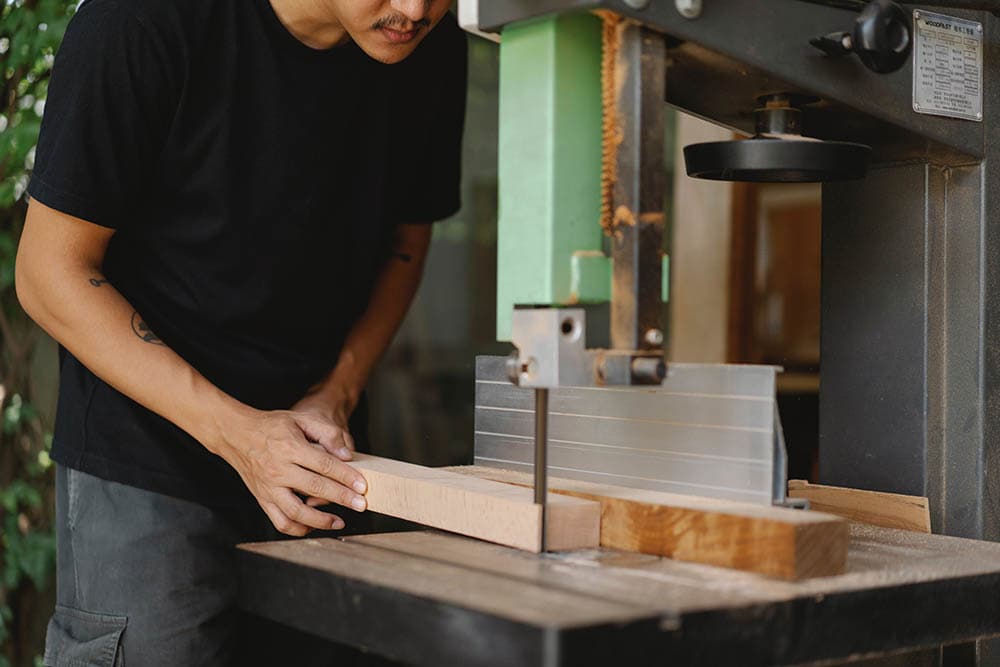
| Wood Species | Janka Hardness (N) | Hardness Grade |
| Brazilian Ebony | 16420 |
Exceedingly hard |
| Ipe | 16390 | |
| Cumaru | 15470 | |
| Ebony | 14300 |
Extremely hard |
| Golden Teak | 10400 | |
| Merbau | 8560 |
Very hard |
| Hickory | 8100 | |
| Rosewood | 7900 |
Hard |
| White Oak | 6000 | |
| Ash | 5900 |
Rather hard |
| Birch | 5600 | |
| English Oak | 5000 |
Firm |
| Burmese Teak | 4600 | |
| Black Walnut | 4500 | |
| Cherry | 4200 | |
| Mahogany | 3600 | |
| Douglas Fir | 2900 |
Soft |
| Alder | 2600 | |
| Chestnut | 2400 | |
| Poplar | 2400 | |
| White Pine | 1900 |
Very soft |
| Balsa | 310 |
Can Poplar Resist Rot?
Even though poplar is durable compared to some other species, the heartwood of poplar is very porous and prone to insect attacks. Because it is so soft and, in a way, fragile, it is also highly vulnerable to rot and decay. Because of this, poplar wood is not suitable for outdoor use where it can get wet or moist frequently. Once it is exposed to humid weather and a lot of moisture, it can start to rot pretty quickly.
If you want to add poplar wood to your outside deck or some other outdoor project, make sure to use paint and polish, or go for treated poplar wood instead. Treated poplar wood may cost twice as much as untreated wood, but it is excellent at resisting moisture, which is a better option in the long run.
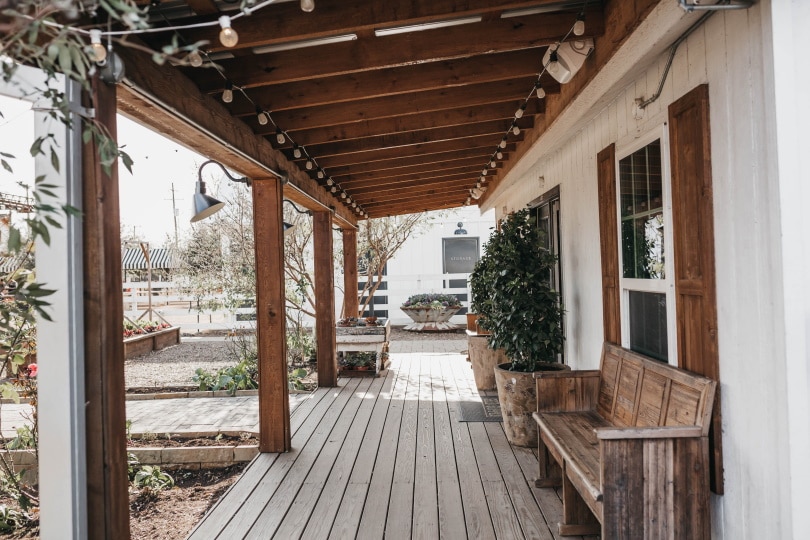
What is Poplar Used For?
Poplar is mainly used for making furniture, support material for furniture, and upholstered furniture and wooden cabinets. Poplar is also ideal for making children’s toys and decorative items like picture frames. Poplar is also commonly found in construction plywood, and grade lumber construction.
Is Poplar Good for Furniture?
Poplar wood plays a very important role in furniture making. This wood has many different shades of color, from black and gray to dark green, and has a fine texture. The fact that poplar accepts color so well makes it great for camouflaging and disguising as other wood species. Since it is so widespread, easily obtainable, and affordable, poplar wood is widespread in the furniture manufacturing industry. Some of the most common uses for poplar wood are:
- Tables
- Chairs
- Cabinets and cupboards
- Cabinet framing
- Crates
- Home decor
- Benches
- Shelves and bookshelves
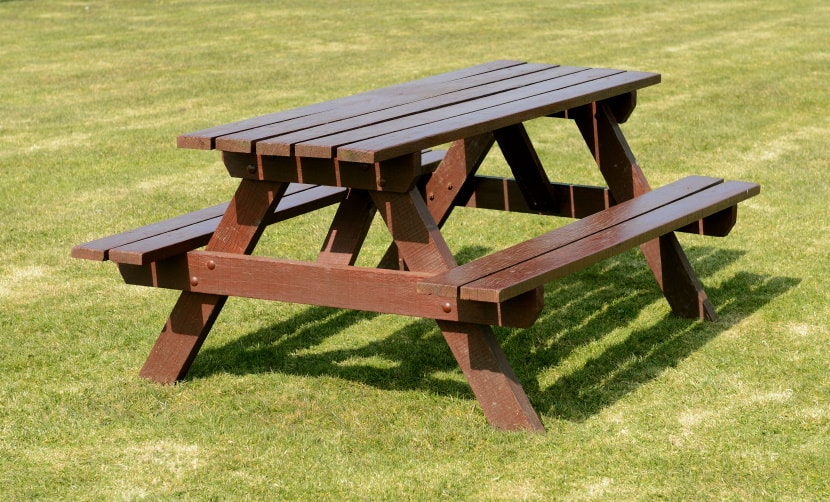
Is Poplar Good for Flooring?
Even though poplar wood is so versatile and widespread in commercial use, it has some restrictions. Poplar wood is pretty durable, but it is one of the softer woods in the industry, so it won’t be the best flooring solution. For this type of project, poplar is too weak, absorbent, and not as durable as is required. It is prone to insects and pests such as termites, and it will slowly decay over time.
If you were considering using poplar for your flooring, you might want to look for a more firm wood species to get a long-lasting and durable floor.
Advantages of Using Poplar Wood
There are many advantages to using poplar in various projects around your home other than flooring. We will list some of the most common benefits that poplar brings.
- Uniform texture
- Versatile
- Easy to process and work with
- Accepts color and glue exceptionally well
- Lightweight
- Affordable
- Widespread
- It can be quickly machine worked
- Assembling and nailing screws and nails is incredibly easy
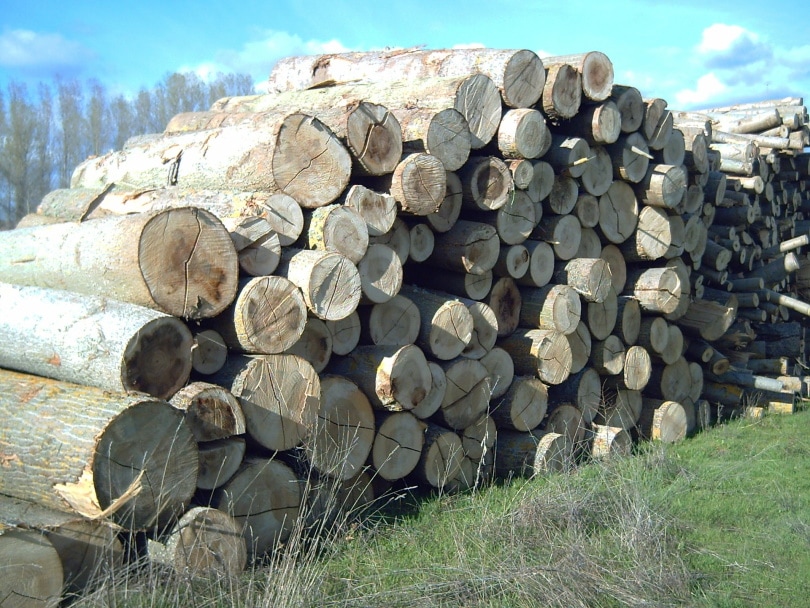
Disadvantages of Using Poplar Wood
While there are many apparent advantages of using poplar wood in various ways, there are some disadvantages that you may need to consider before going into any project making.
- Easy to dent and scrape
- Tears easily
- It may irritate or cause allergies
- Requires thorough sanding
- More paint and primer are required
Final Thoughts
If you were unsure about what poplar is best used for and whether you can use it for your flooring, we hope we gave you some answers in this article. While poplar is excellent for making furniture and other items around the home, it is not a perfect flooring solution.
If you decide to use hardwood flooring in your home, it would be much wiser to go for a species of wood that is harder than poplar. Poplar wood is incredibly soft and will dent and scrape very fast.
Featured Image Credit: Andrei Metelev, Shutterstock
Contents

 What is Poplar?
What is Poplar?